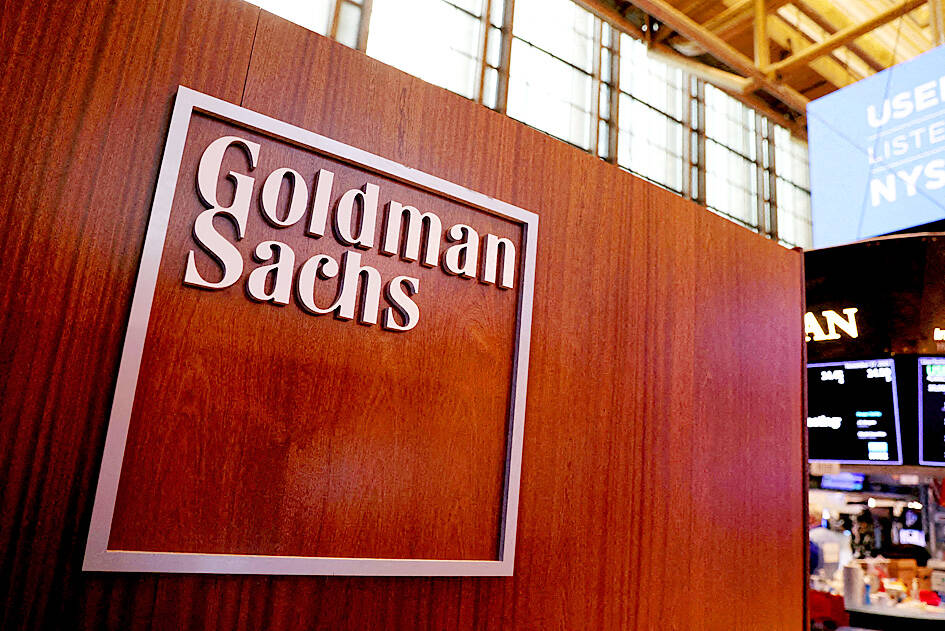Two surveys have suggested that China’s manufacturing sector improved or at least stabilized this month compared with the previous month, providing some respite following signs of a slowdown in the economy’s recovery.
China Beige Book, a US-based data provider, said its surveys showed that manufacturing output increased “notably” from last month, as did domestic and foreign orders.
Separately, Goldman Sachs Group Inc cited a pick up in the emerging industries purchasing managers’ index (PMI).

Photo: Reuters
“It’s still too early to put a nail in the coffin of the post-COVID Zero recovery,” China Beige Book said in a statement. “Manufacturing activity defied rumors of demise, though soft demand from Western economies remains a major headwind.”
Revenue and profit margins for Chinese manufacturers as well as the service and retail sectors also increased this month from the previous month, it said.
China Beige Book’s data was based on a survey of about 1,000 Chinese firms conducted between May 18 and Thursday last week.
Morgan Stanley chief China economist Robin Xing (邢自強) remained optimistic about China’s growth trajectory for the year despite the softer data last month.
“I would see recent April data weakness as a hiccup,” he said in an interview with Bloomberg TV, adding that the strength in services spending limited any need for additional stimulus.
“As we have witnessed in other Asian economies who didn’t use paychecks or fiscal transfers to jump-start the recovery, the recovery takes time because you need the service sector to recreate jobs,” he said.
China’s emerging industries PMI, which measures month-on-month changes in activity in sectors such as renewable energy, advanced manufacturing and biotechnology, showed an uptick this month compared with the previous month after seasonal adjustment, Goldman Sachs’s China economist Hui Shan (閃輝) said in a note.
The emerging industries PMI is widely seen as a leading indicator of China’s official manufacturing PMI, and the figures suggest “a tentative sign that manufacturing activity may begin to stabilize,” Hui added.
The official PMI is set to be released today.
The housing market remains a concern, with the China Beige Book survey finding weakness in the sector.
“Construction is continuing to struggle,” Shehzad Qazi, managing director of the survey company said in an interview on Bloomberg Radio. “The property market recovery remains incredibly uneven. Price growth rebounded from April, but sales slowed.”

Hong Kong authorities ramped up sales of the local dollar as the greenback’s slide threatened the foreign-exchange peg. The Hong Kong Monetary Authority (HKMA) sold a record HK$60.5 billion (US$7.8 billion) of the city’s currency, according to an alert sent on its Bloomberg page yesterday in Asia, after it tested the upper end of its trading band. That added to the HK$56.1 billion of sales versus the greenback since Friday. The rapid intervention signals efforts from the city’s authorities to limit the local currency’s moves within its HK$7.75 to HK$7.85 per US dollar trading band. Heavy sales of the local dollar by

To many, Tatu City on the outskirts of Nairobi looks like a success. The first city entirely built by a private company to be operational in east Africa, with about 25,000 people living and working there, it accounts for about two-thirds of all foreign investment in Kenya. Its low-tax status has attracted more than 100 businesses including Heineken, coffee brand Dormans, and the biggest call-center and cold-chain transport firms in the region. However, to some local politicians, Tatu City has looked more like a target for extortion. A parade of governors have demanded land worth millions of dollars in exchange

Taiwan Semiconductor Manufacturing Co’s (TSMC, 台積電) revenue jumped 48 percent last month, underscoring how electronics firms scrambled to acquire essential components before global tariffs took effect. The main chipmaker for Apple Inc and Nvidia Corp reported monthly sales of NT$349.6 billion (US$11.6 billion). That compares with the average analysts’ estimate for a 38 percent rise in second-quarter revenue. US President Donald Trump’s trade war is prompting economists to retool GDP forecasts worldwide, casting doubt over the outlook for everything from iPhone demand to computing and datacenter construction. However, TSMC — a barometer for global tech spending given its central role in the

The Financial Supervisory Commission (FSC) yesterday met with some of the nation’s largest insurance companies as a skyrocketing New Taiwan dollar piles pressure on their hundreds of billions of dollars in US bond investments. The commission has asked some life insurance firms, among the biggest Asian holders of US debt, to discuss how the rapidly strengthening NT dollar has impacted their operations, people familiar with the matter said. The meeting took place as the NT dollar jumped as much as 5 percent yesterday, its biggest intraday gain in more than three decades. The local currency surged as exporters rushed to